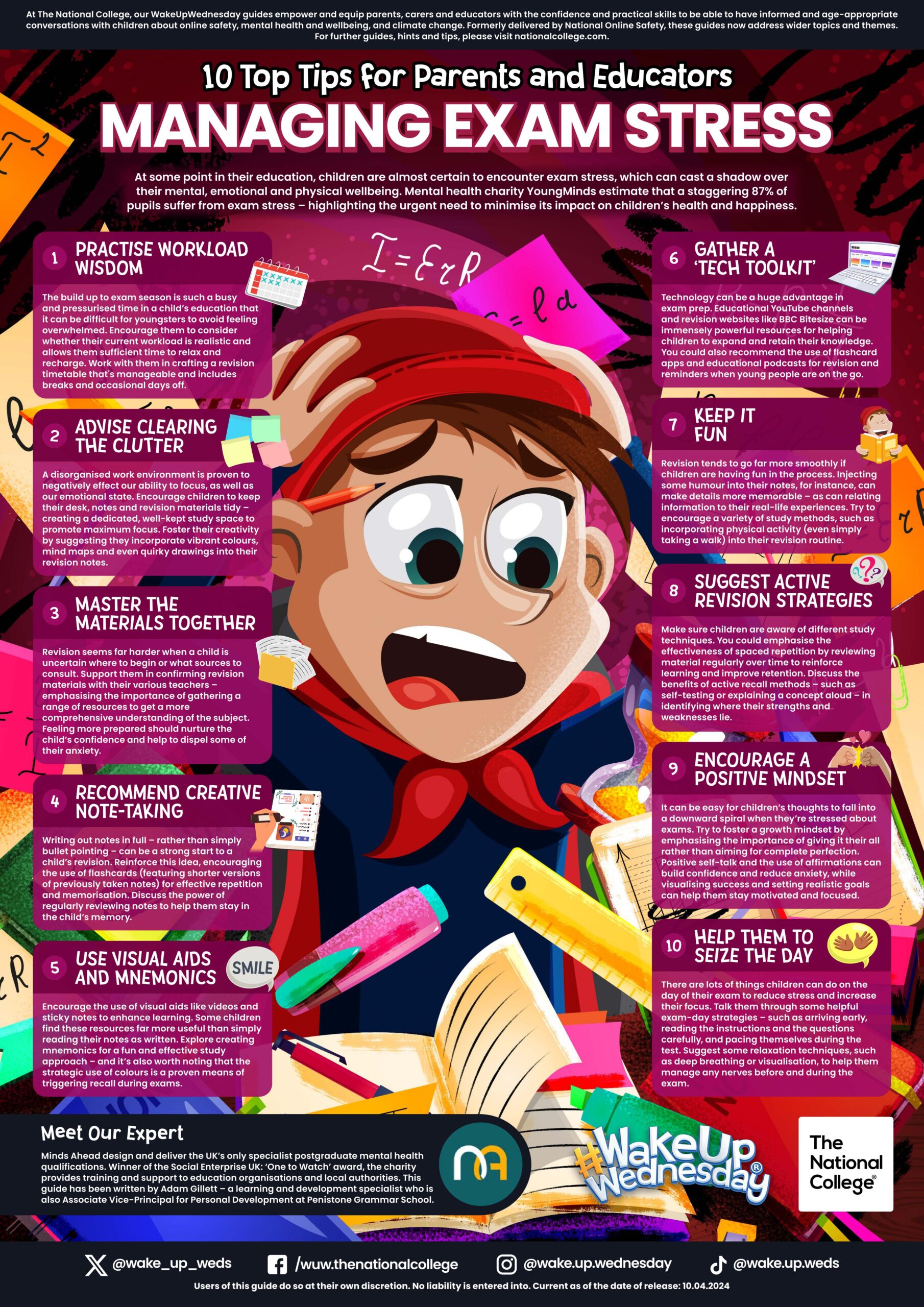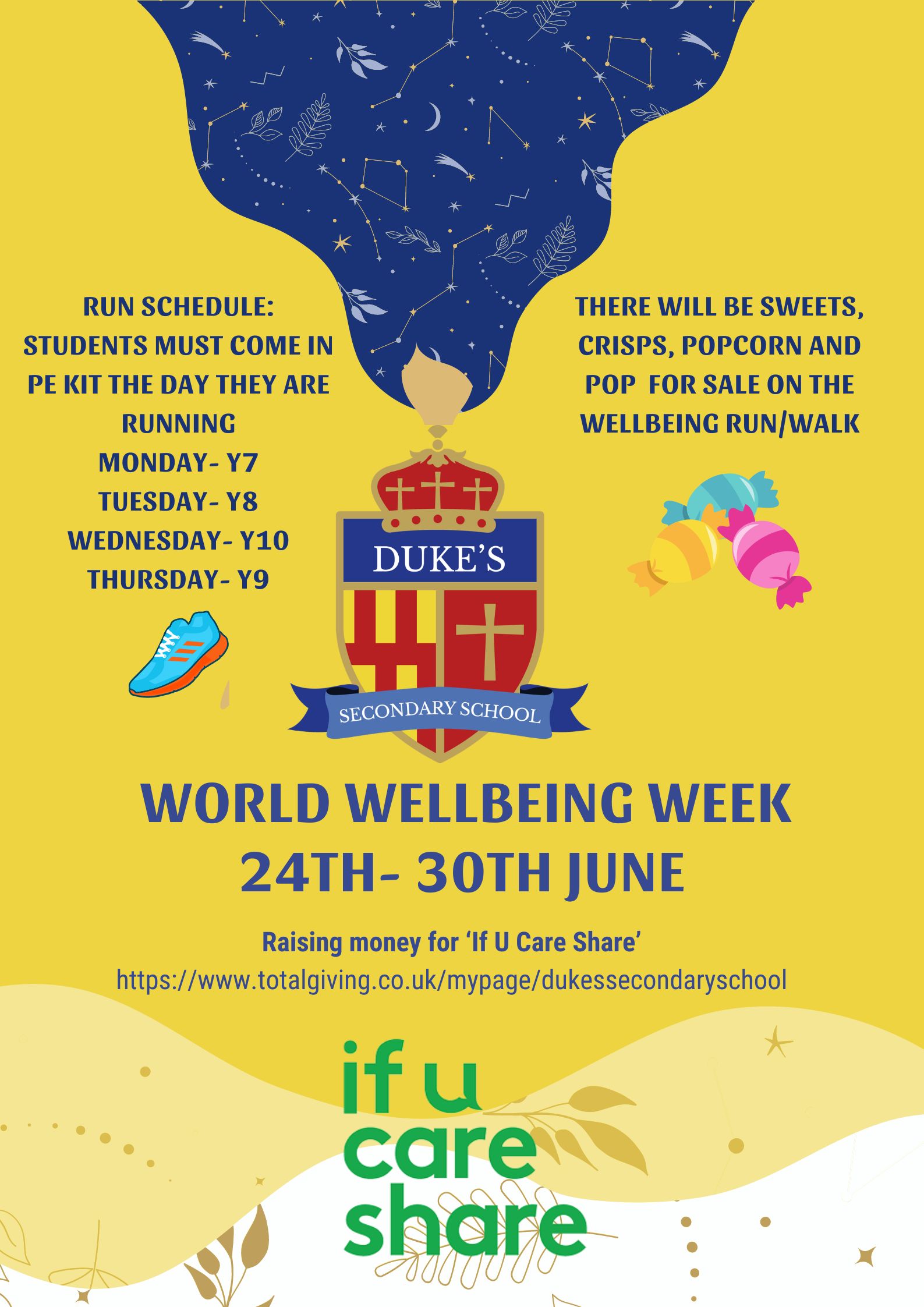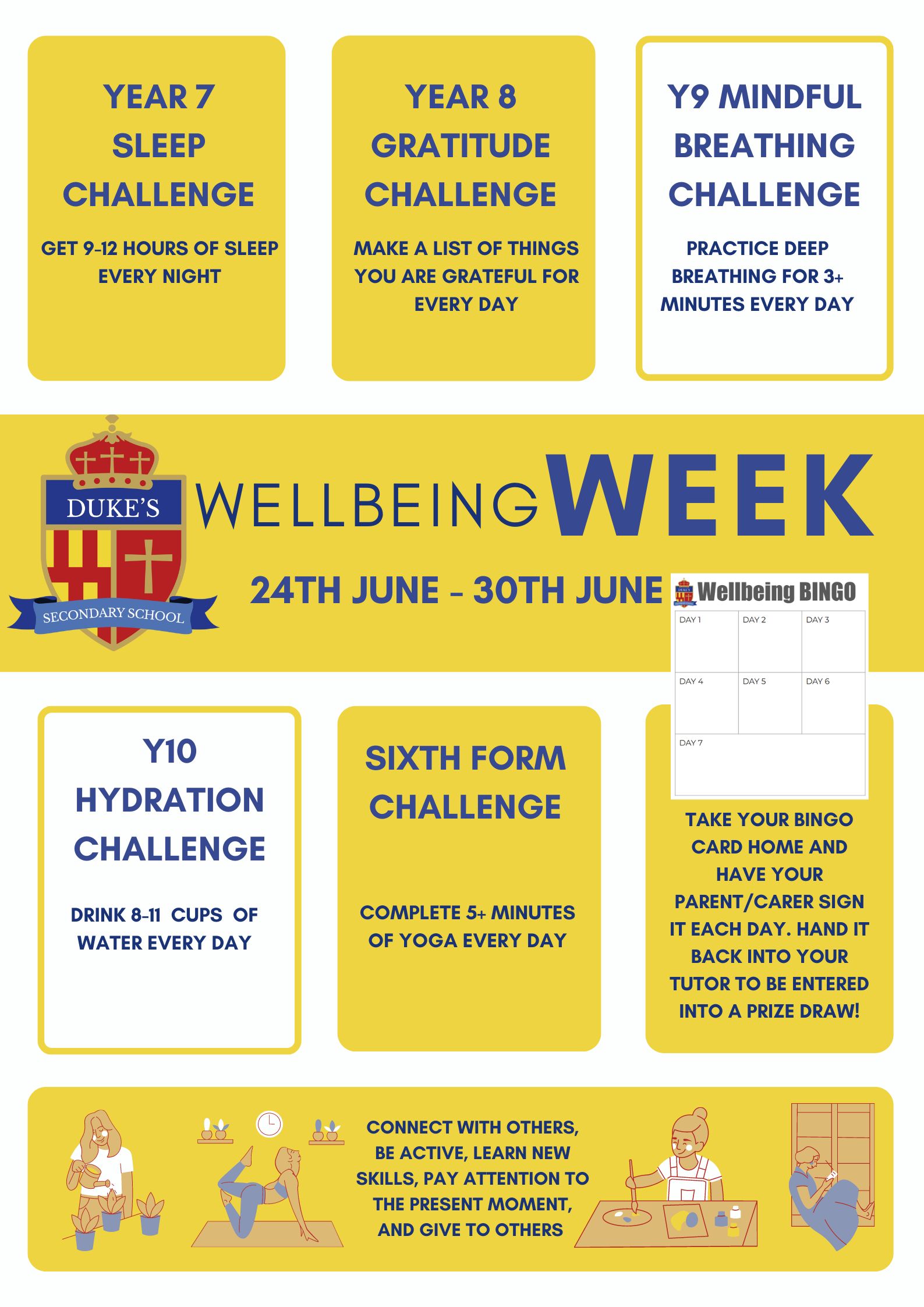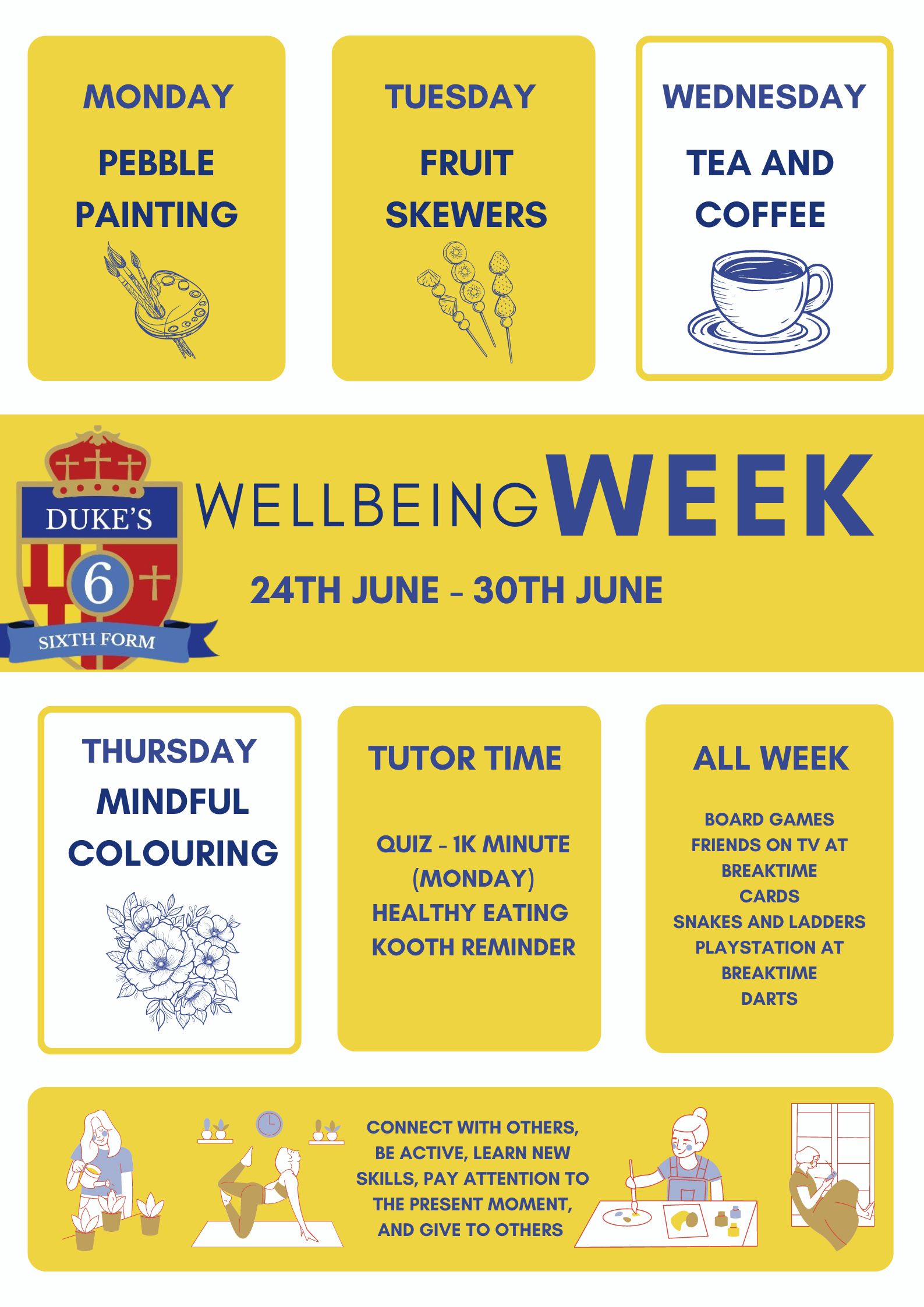Access to up to date career and labour market information is important for helping students to explore potential pathways for their future. Check out the latest news in our Labour Market Information Bulletin.
Most of us have felt the dread of impending exams. The pressure to succeed and not let our loved ones – or ourselves – down can sometimes manifest in ways that are harmful to children’s mental and emotional wellbeing. Several studies have demonstrated that, in a vicious circle, such anxiety impacts our working memory and actually damages academic performance as a result.
However, there are various solutions to the pre-exam jitters besides simply “getting on with it” – and a little support can go a long way in boosting young people who are suffering from this type of apprehension. To tie in with National Stress Awareness Month, this week’s #WakeUpWednesday guide has some expert tips for helping children and young people to deal with exam stress

Please find attached information with regard to the and the use of the Arbor App for payments and communication from school.
This week’s Learn>Revise>Test focus is Mind Maps.
For more revision techniques, please check out https://sites.google.com/dukes.ncea.org.uk/learnrevisetest/revise

The latest bullying research from the DfE makes for upsetting reading. Almost half (40%) of schoolchildren in the UK have been bullied within the past 12 months – with 21% of them experiencing negative changes to their behaviour, including avoiding going to school. In 15% of those cases, the victim’s behaviour suffers to the extent that they are ultimately excluded themselves.
Understanding and honest conversation can be an immense benefit to children who have become the target of bullying – but it’s such a delicate subject that it can often be hard for trusted adults to know where (or how) to start. Our #WakeUpWednesday guide this week contains ten practical tips for supporting a child who is experiencing bullying





